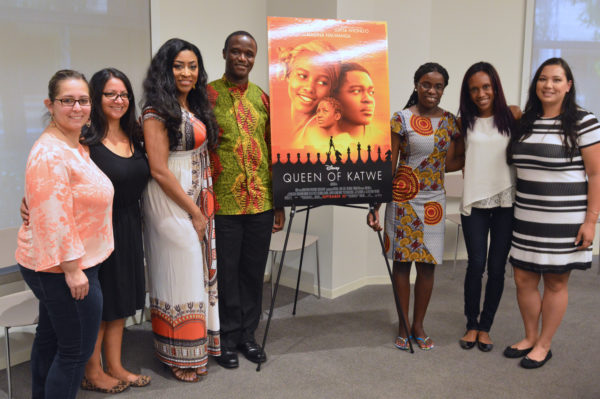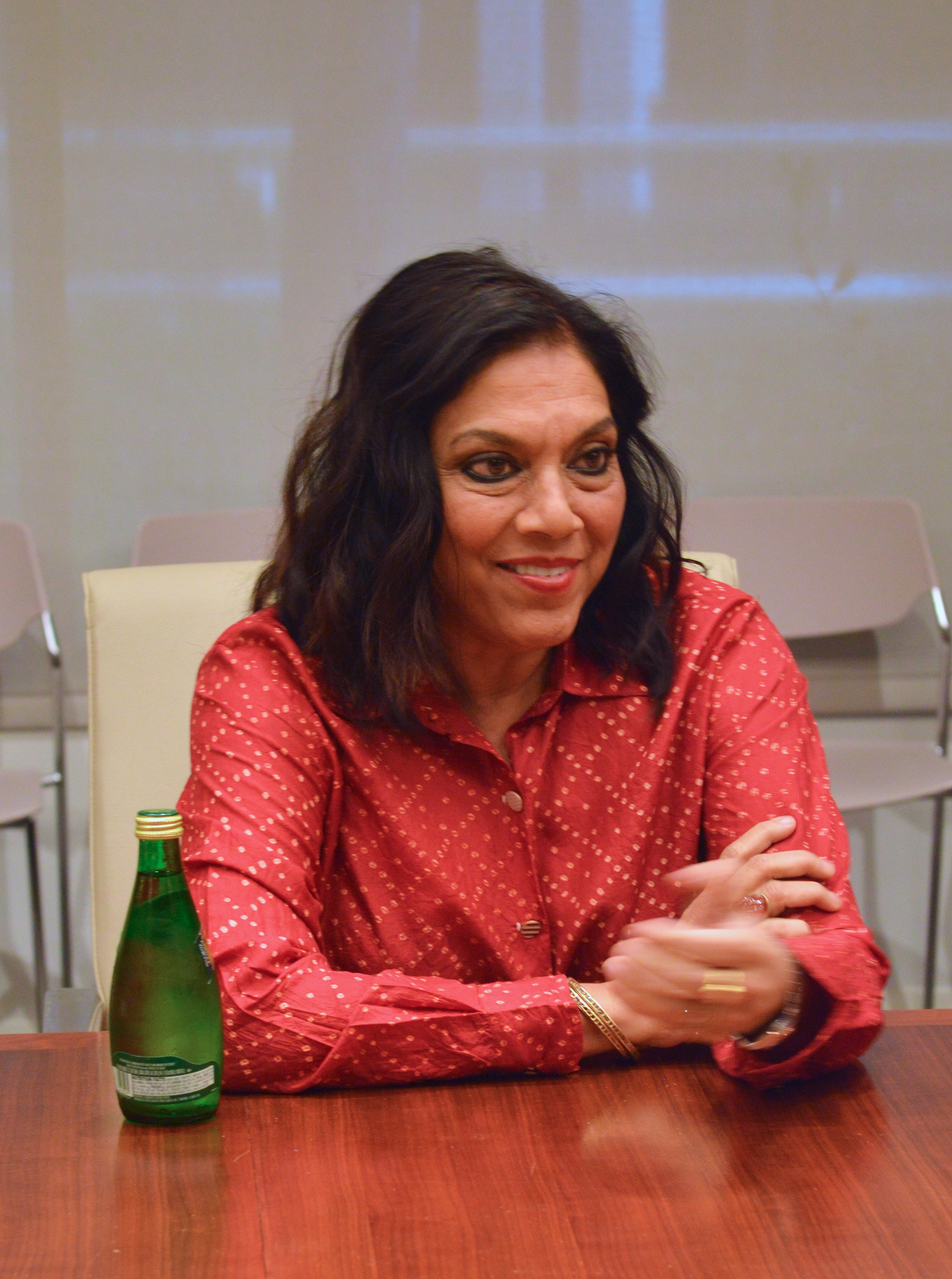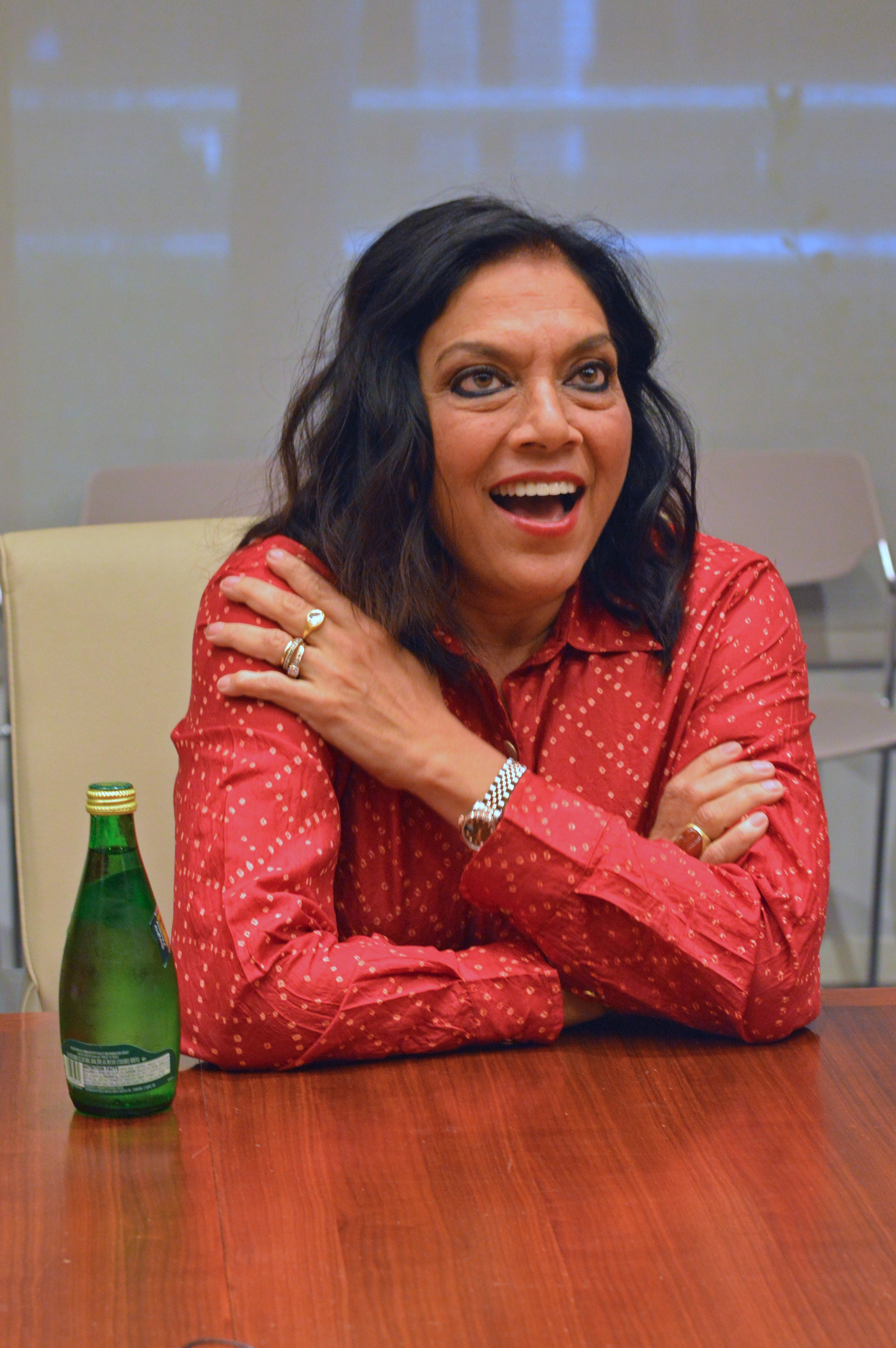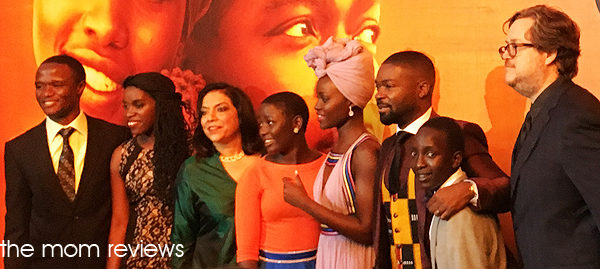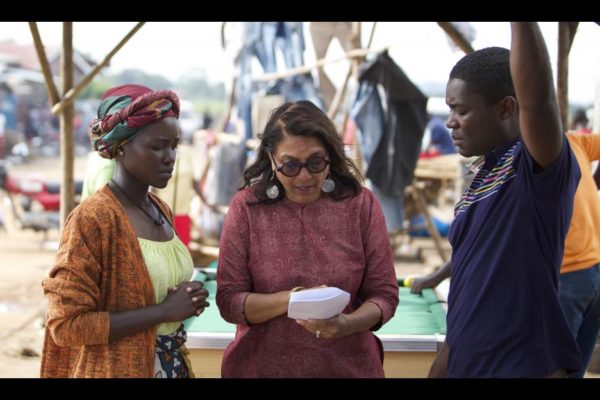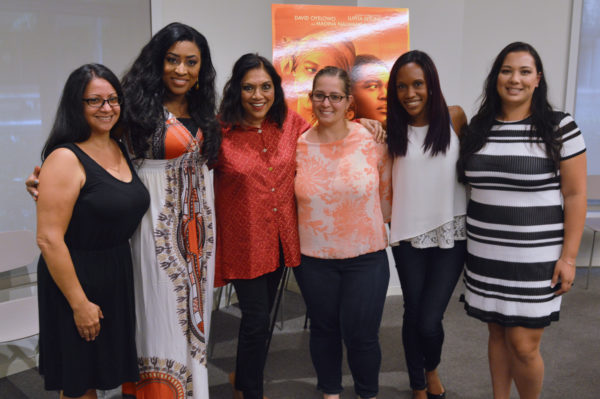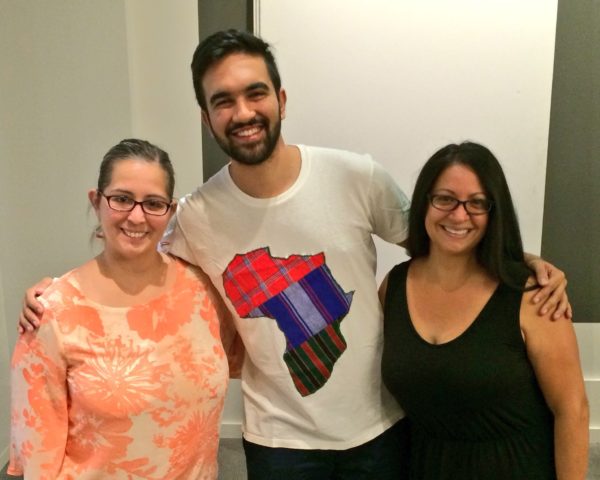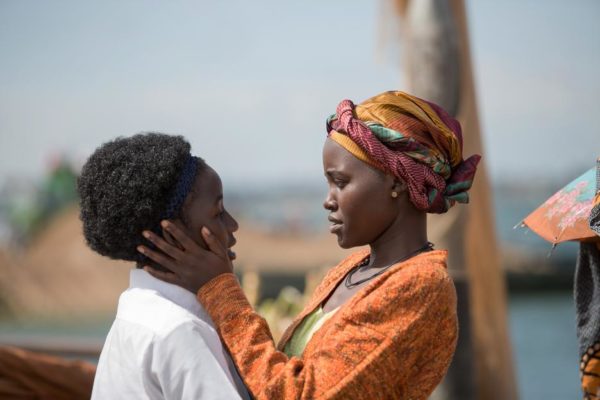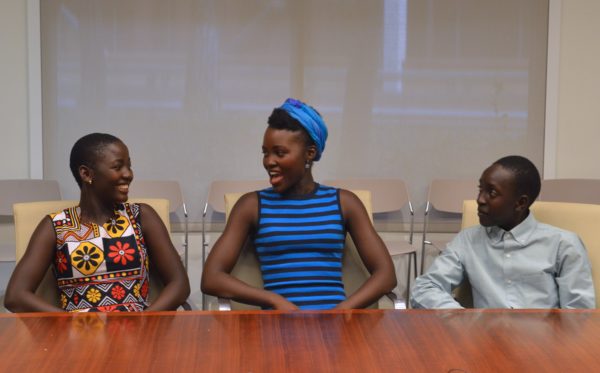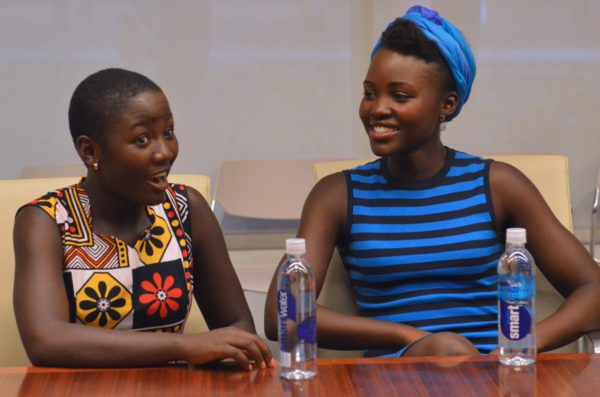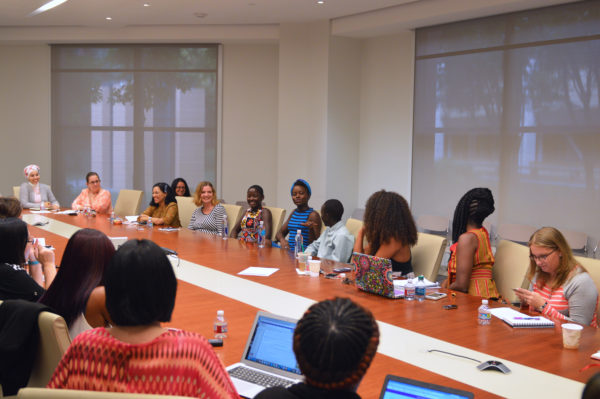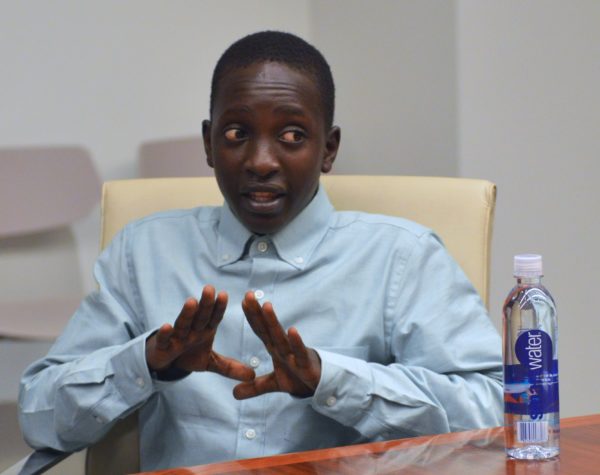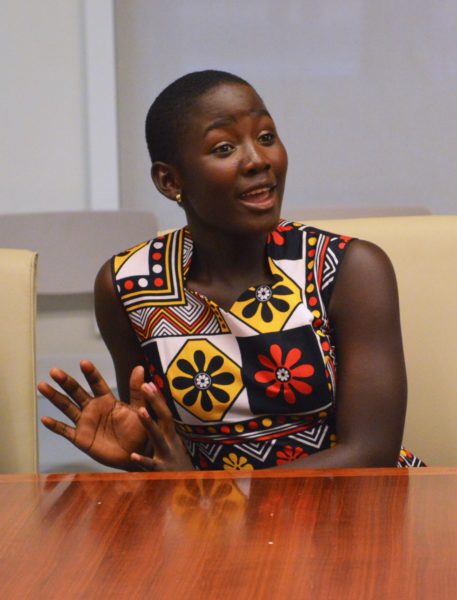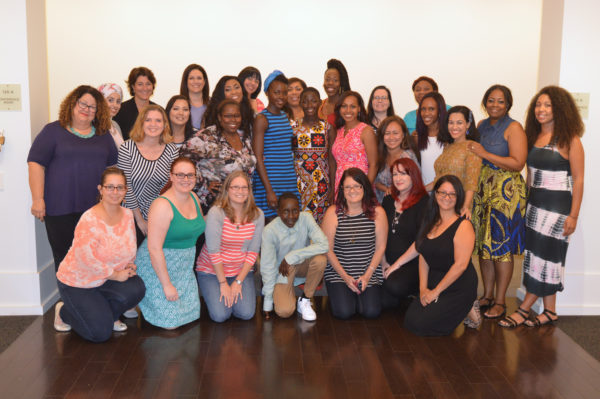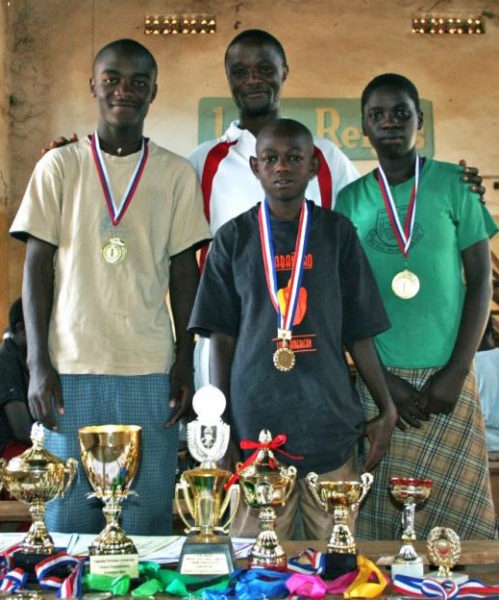 All week I’ve presented you with our exclusive interviews with the stars and director of Queen Of Katwe as well as 3 strong reasons why you should see the movie in theaters everywhere, TODAY! One of those reasons is because the movie is based on a true story. Our last set of interviews, we had the chance to meet the very inspirations for Queen Of Katwe, Phiona Mutesi and Robert Katende. Here is some background on pair of them.
All week I’ve presented you with our exclusive interviews with the stars and director of Queen Of Katwe as well as 3 strong reasons why you should see the movie in theaters everywhere, TODAY! One of those reasons is because the movie is based on a true story. Our last set of interviews, we had the chance to meet the very inspirations for Queen Of Katwe, Phiona Mutesi and Robert Katende. Here is some background on pair of them.
About Phiona Mutesi and Robert Katende
Life in Uganda for 9-year-old Phiona Mutesi was a constant struggle. She spent her days selling vegetables on the streets of Katwe, one of the most poverty- stricken slums in Kampala, so school was not an option. When Phiona followed her brother Brian to the church one day, she observed Katende sharing the fundamentals of chess with children her own age. It is a moment that will seal her destiny. She is mesmerized by the game and quickly catches on to its meticulous rules and the importance each calculated move on the board holds. Katende recognized her extraordinary aptitude right away and began to mentor her. Katende persuaded Phiona’s protective and skeptical mother Harriet to put her fears aside and support her daughter’s dream of playing chess competitively. Phiona rapidly advanced through the ranks of chess tournaments, and within two years became Uganda’s junior champion with her sights set on the national championship. “Before I met Robert and started playing chess, I had lost all hope,” says Mutesi. “I was sad because I recently lost my dad and there was no money for school and I thought I would always be living on the streets. Since then, I have traveled to many different countries and met many wonderful people who I never expected to meet, which has helped restore my hope. I thank God that I met Robert and learned to play chess, because it is chess that made all these things possible.”
Robert Katende was born in Uganda and became a refugee during Uganda’s civil war. He never knew his father and lost his mother at an early age. His skill as a soccer player, along with a dedication to improving himself through education, brought him an opportunity to earn a university degree in civil engineering. He married his college sweetheart, Sarah, and they had their first child while he was searching for a job that could both support his family and fulfill him personally. In the interim, he worked as a soccer coach at a local church organization in the slums of Katwe. He found that some of the children were reluctant to play soccer for fear of getting hurt because there was no money to pay medical bills. For these children, he created a chess program at Agape Church. This program became his passion and his profession. He called the first chess group his “Pioneers” and they blazed a trail of championships across Africa. His outstanding work earned him a position on the Uganda Chess Federation executive as director of development. Katende is currently working to expand the outreach of his program across Uganda by setting up other Chess Centers and to establish a permanent headquarter for his chess academy in Kampala.
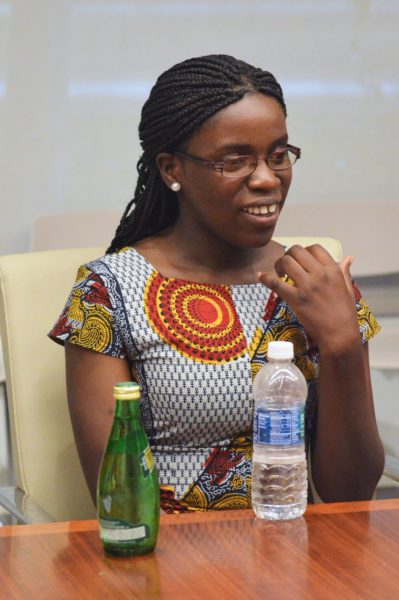
Phiona and Robert were bigger than life as they entered the room. So poised and confident, and proud! Some questions that was asked to Phiona was how she was feeling right now, how does it feel to have your life portrayed on the big screen, and if the movie was as true to life as it could be.
Phiona Mutesi: Well, it’s interesting, I cannot believe it. I cannot just believe it, I cannot believe it. Well, I liked [the movie] when I saw it. I couldn’t believe I was watching myself, it was my first time in the big theater. I was on the Red Carpet. I’ve never been in such a situation. It feels too huge for me. I feel like I shouldn’t be there, it should be someone else.
Quoting a line from the movie one of the bloggers tells Phiona, “you’re supposed to be here. You belong here.” She smiles, and we all just take a breath and hold back tears. You’ll know what I mean when you see the movie!
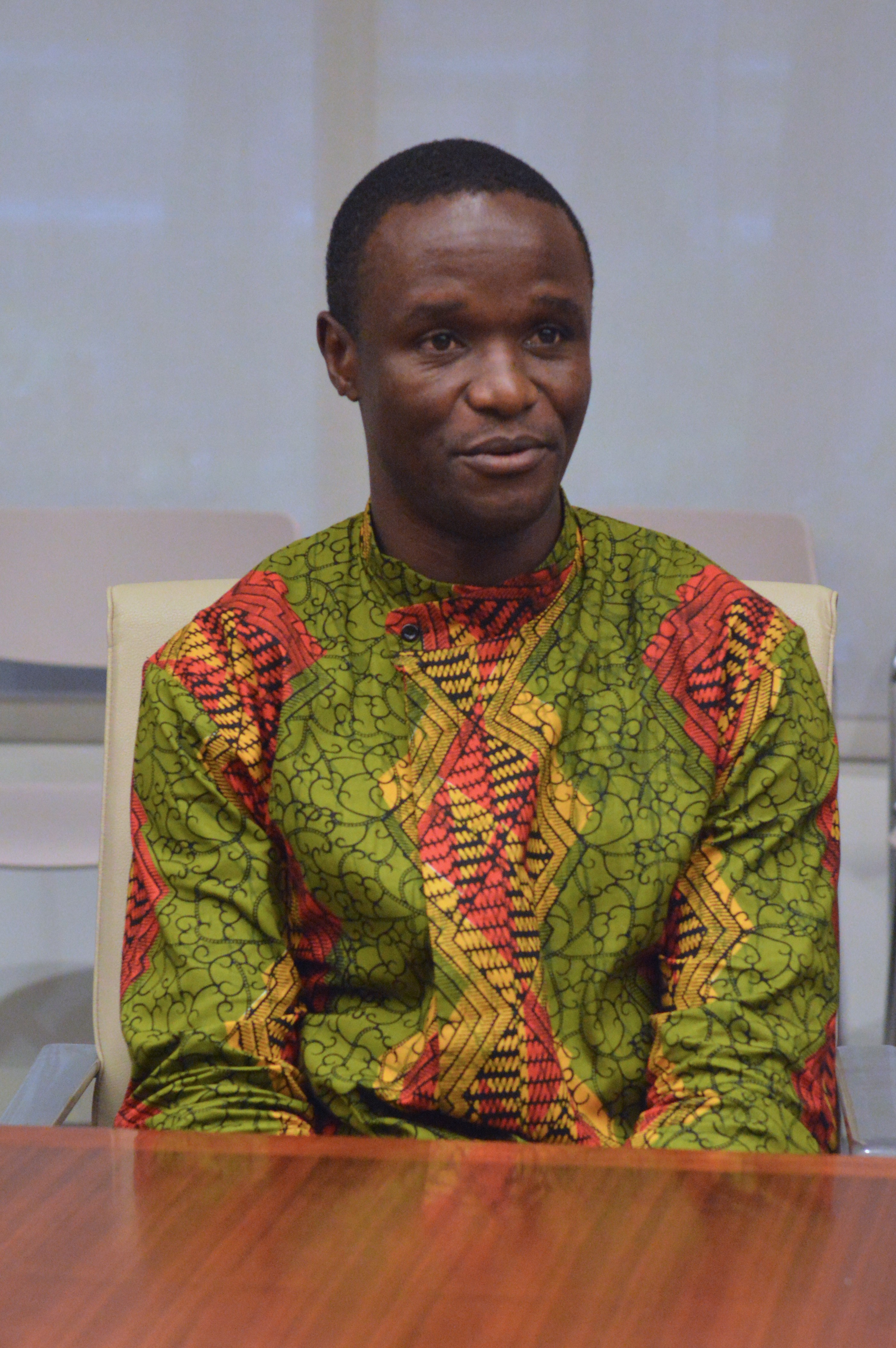
There are life lessons we all can learn from chess. Robert goes into detail about this.
Robert Katende: Generally in life there are many values that we meet on a daily basis in our lives. In a child’s life you can involve them well to the platform of chess. You can tackle abstract thinking, problem solving, decision making, weighing options, and even responsibility because chess kind of mentors you in finding value and where you have to get comfortable with your decisions, and don’t simply make moves. You should have a plan, you should have an objective, an activity objective. It gives you an opportunity to where you can have ideas and try to figure out how to bring them to reality. So you must get input in the integration of these values and principles from the game into your lifestyle.
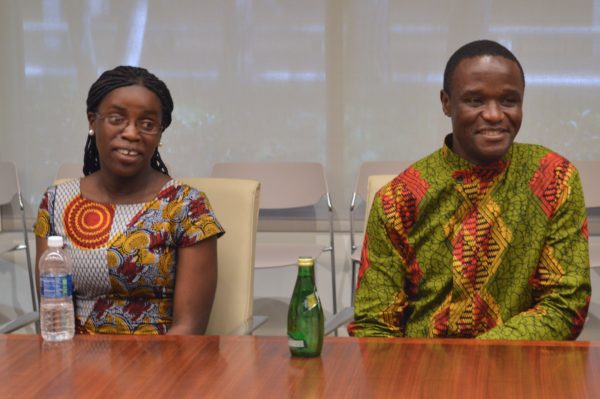
Robert continues to talk about mentorship and how that played a role in his life.
Robert Katende: Yeah, surely it is something remarkable. I strongly believe maybe my general team have really done it. I have learned on being a father. Before I got a family, I was more in a training, so they really taught me so much about tolerance, patience and embracing each one’s ability. Because when it comes to the programs, it’s not so much entailed on chess but it’s more of focusing on an individual. And if the child is different- they have different abilities; different perspectives of life, and now you find yourself in this dilemma where you have to look at each child as an individual. To me, it’s more of a community investment. You really choose to be in there and see how this important to them.
I did find where is the strength of this one, they are now the ones leading most of the programs because they have turned out to be good leaders. But I remember ten years back, the good example was Richard. So this is the young boy who volunteered to keep our chess board, he came six months later and said, “Coach, I think we need to find somewhere else to keep our board.” Why? And then he said, “When my uncle comes back home, he comes back drunk, and he fights with auntie and so they will break our board.” Now, this really hit me and I almost shed tears because for him, it was for the board, and me. I was moved to, what kind of trauma does this child go through at home? So it takes you beyond what you think when it comes to mentorship, I’ve many times find myself going beyond the actual child, and going even to the people behind the child.
Because some of the issues are actually from the guardian, or the uncle, or the auntie, they have that role that they play. Sometimes once you see this child going through, they’re just symptoms, and they have a cause behind it. And sometimes you cannot keep on addressing the symptoms and that forces you to go beyond, and then reach out to even the guardians. Those who don’t have them, I got an opportunity to get to adopt them so that I am with them now.
You can find them in my home in the hotel, and there are about eight kids over there. We sometimes even mentor them who know how to play chess. So it’s now more like a big family. But mentorship is not something really you can just say it’s on and then off. It’s a an ongoing process. It’s not like, I will come and teach you, and then go away, but you allow them to learn your weaknesses, to learn how you face difficulties, how you respond to them.
It’s not a short case kind of situation, but you’re more like living with them on a daily basis, and they learn the positive way how to react to grief; how to respond to calamities if they occur. So you are their only model. They’re there to pick every lesson from you- so they become part of you. You open your home. They are there; they are part of you; they give you a call; they come; they say, “coach, we need to come.” So it is an ongoing selfless living, you know, but for the purpose of, trying to see how best how you can support.
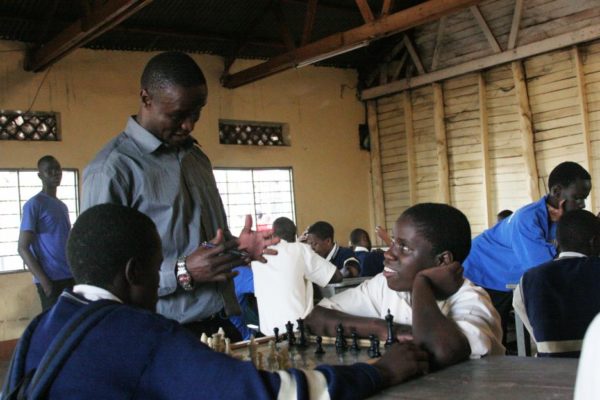 Robert explains how started with the pioneers and where they are now with his chess academy.
Robert explains how started with the pioneers and where they are now with his chess academy.
Robert Katende: I started, in 2002 and, it really started stabilizing in 2004. There were six kids, I have six and I’ve been dealing with them for over now twelve years. Like Phiona, she was nine, and now she’s twenty. So they have now become young adults. When I took them they had no schooling. He’s now qualified as a physics and math teacher. He’s now, he’s just graduating, June, commencing. Benjamin, he’s just completing high school to go to university next year. So it’s really a remarkable journey, for me to see them. And, besides they have professional kind of goals, they are naturally becoming leaders.
They reach out to the program like Phiona, it’s not just like coincidence, but it’s like a strategy on starting to give them some sense of responsibility, and then also enabling them to realize that they have something they can really offer at even their lower level. So they are naturally in this that they should grow. We instruct and we plan together with the kids who were the kids then- now they are adults, and we just sit and plan. I’m so grateful because I kind of see myself like I have not planned. Like, even right now, we are weighing all this with over eight kids packed in.
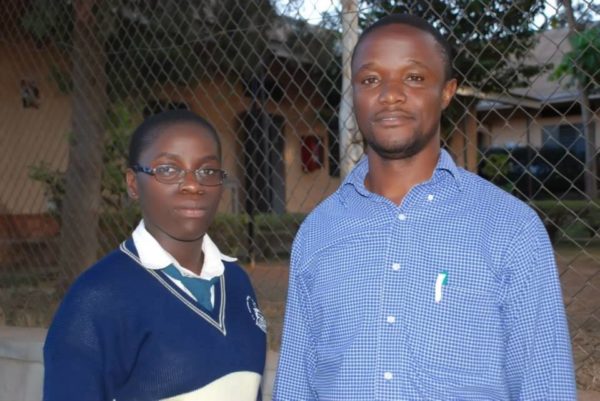 A question was posed to Robert and Phiona about how they react to fear. A quote from the Queen of Katwe book mentions “stepping out of the boat” and reacting to fear. Phiona also mentions how she’s grown and learned from each new game.
A question was posed to Robert and Phiona about how they react to fear. A quote from the Queen of Katwe book mentions “stepping out of the boat” and reacting to fear. Phiona also mentions how she’s grown and learned from each new game.
Robert Katende: In most cases fear hinders a lot especially for the children, they have nothing to relate to- no one has ever done it. They cannot connect. You be there first. You take that responsibility. We just offer have real-life situations. Then the question now is, what do you think is going to change us? Ask the person, what’s going to change this turnaround, to make this happen. So it’s like you start to instill a sense of discipline and responsibility. You need to see it from their perspective; not look at all- I wish my aunt had done this; oh, I wish my mom was available, but and my personal life, I tell them, look at me.
I’m a typical orphan; I never knew that things would ever change. But in every case, I had to keep on trying. I’d rather try than fail to try, and then I say it didn’t work out. There are moments when I go- I wanted so much to do, I was really good in academics, but I can imagine what you are reading today. You have exams in two weeks, but you’re not sure whether you’re going to see them because you don’t have, you don’t realize the future. So you ask many times, why should I really? If it doesn’t happen, I will have done my part. So that’s the kind of approach I take.
Phiona Mutesi : My reaction whenever I would lose a game, most of the time I would cry, maybe today with the pain of pressure, that’s when I cry most. Like whenever I was in Uganda, I could do most of my games, I’m coming to Russia I thought everything is going to be small. Yet, I forgot about that this is a different experience from Uganda and, so from that, I think I got an experience- a great one, and got to learn everything, so it doesn’t affect me anymore. Whenever I lose, it’s just part of the game. I just had to learn from that.
What advice would Phiona give to a young girl that’s scared of stepping out?
Phiona Mutesi : I’ll say most people when they’re having problems it just takes hope. Have hope in everything you’re doing, and just be hard working. Have a dream, I want to be this in my life.
Phiona and Robert talk about working with the director and coaching the actors on set.
Phiona Mutesi : I met Madina {Nalwanga, who plays Phiona in the movie] once. We talked and it was kind of similar but kind of a difference. I ended up coaching her. I’ve been with Mira, she’s been coming to the academy.
Robert Katende : I had an opportunity to really not do much, but I think I did more from the start. It’s really very happy watching. It was very free; very open, and he [David Oyelowo, who plays Robert in the movie] would come to me and asking every time anything you can find that is not in line, let me know. He would come and say, Robert, how do you say this? So I’d just go through his lines; what would you say to Sarah because you are in this situation? To make sure that he’s in line with everything. So maybe in this celebration part when Phiona won the tournament, I’m not fond of dancing so I think I did give him an opportunity to.
Our final question of the interview was what has surprised you the most in bringing your story to the big screen?
Robert Katende: I would say the whole experience was quite surprising because it’s something which I could never have imagined in my life. And two, it just proved to me a sense of awareness that you get encouragement of what you’re doing because you step out to do this and I will find myself just doing that without even knowing, that it could be anything big, even in the country itself. This morning, in fact, when I was at the hotel, I was trying to calm down. Even the whole country now will try to ask, where is Robert? And yet before, I remember the times when I would even call radio stations seeking for support for education, and no one would ever bother. You’ve got to look for jobs; you will know no one knows you. So it’s quite amazing to see. I’m grateful for the ladies. It’s quite interesting that even this house is full of them. I have a special place in my heart, right from my grandma, to my aunties, and I think it’s the actual reason why God has given me my little task.
For more #QueenOfKatweEvent posts, interviews, and red carpet experiences from our trip, check out the following link, http://jenisonajourney.com/tag/queen-of-katwe.
Like QUEEN OF KATWE on Facebook: Facebook.com/QueenOfKatwe/
Follow QUEEN OF KATWE on Twitter: @queenofkatwe #QueenOfKatwe #QueenOfKatweEvent
My trip that included this interview with Phiona Mutesi and Robert Katende was hosted by Disney but every opinion documented is 100% my own.
